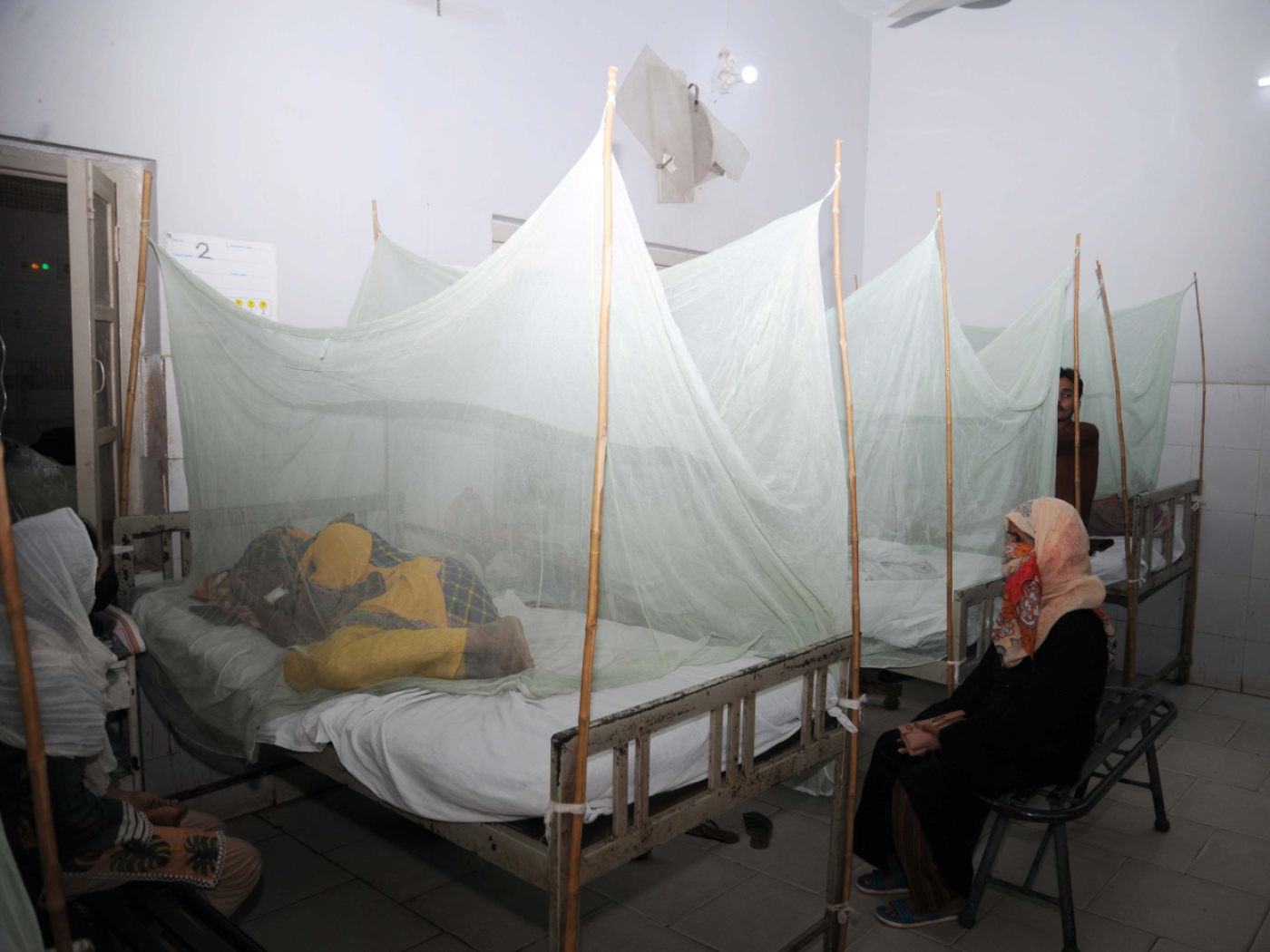
Swiss researchers make progress on malaria vaccine

A Swiss research team has come one step closer to developing an effective malaria vaccine. They have genetically modified the malaria parasite so that it cannot cause malaria.
+Get the most important news from Switzerland in your inbox
In future the weakened parasite could be used as a live vaccine, the Swiss National Science Foundation (SNSF) said on Friday. The vaccine was tested on mice. It was effective in mice, the researchers showed in a study published in the journal Plos One.
However, there is still a long way to go before a truly safe vaccine for humans, they said. “For a vaccine that is to be administered millions of times, it must be ensured that the attenuated parasite does not get through in isolated cases and cause malaria,” said Volker Heussler, the cell biologist from the University of Bern responsible for the research project, in the press release.
+ Switzerland’s global role in fighting malaria
Two genes switched off
Previously approved vaccines against malaria consist of a single protein of the malaria parasite. According to the SNSF, the vaccination provides protection in a maximum of 70% of those vaccinated and only lasts for around one year without a booster.
Researchers are therefore looking for a way to produce a more effective vaccine from an attenuated malaria parasite. In a screening process, they tested 1,500 different variants of the parasite, in each of which a different gene had been switched off.
They found a genetically modified parasite that is stopped in the liver before it enters the bloodstream and triggers fever attacks. To make the vaccine safer, they also switched off another gene that was already known to stop the parasite in the liver stage.
For these studies, they worked with the protozoan Plasmodium berghei, which is closely related to the malaria parasite Plasmodium falciparum but infects mice instead of humans.
Translated from German by DeepL/ts
This news story has been written and carefully fact-checked by an external editorial team. At SWI swissinfo.ch we select the most relevant news for an international audience and use automatic translation tools such as DeepL to translate it into English. Providing you with automatically translated news gives us the time to write more in-depth articles.
If you want to know more about how we work, have a look here, if you want to learn more about how we use technology, click here, and if you have feedback on this news story please write to english@swissinfo.ch.

In compliance with the JTI standards
More: SWI swissinfo.ch certified by the Journalism Trust Initiative




























You can find an overview of ongoing debates with our journalists here . Please join us!
If you want to start a conversation about a topic raised in this article or want to report factual errors, email us at english@swissinfo.ch.